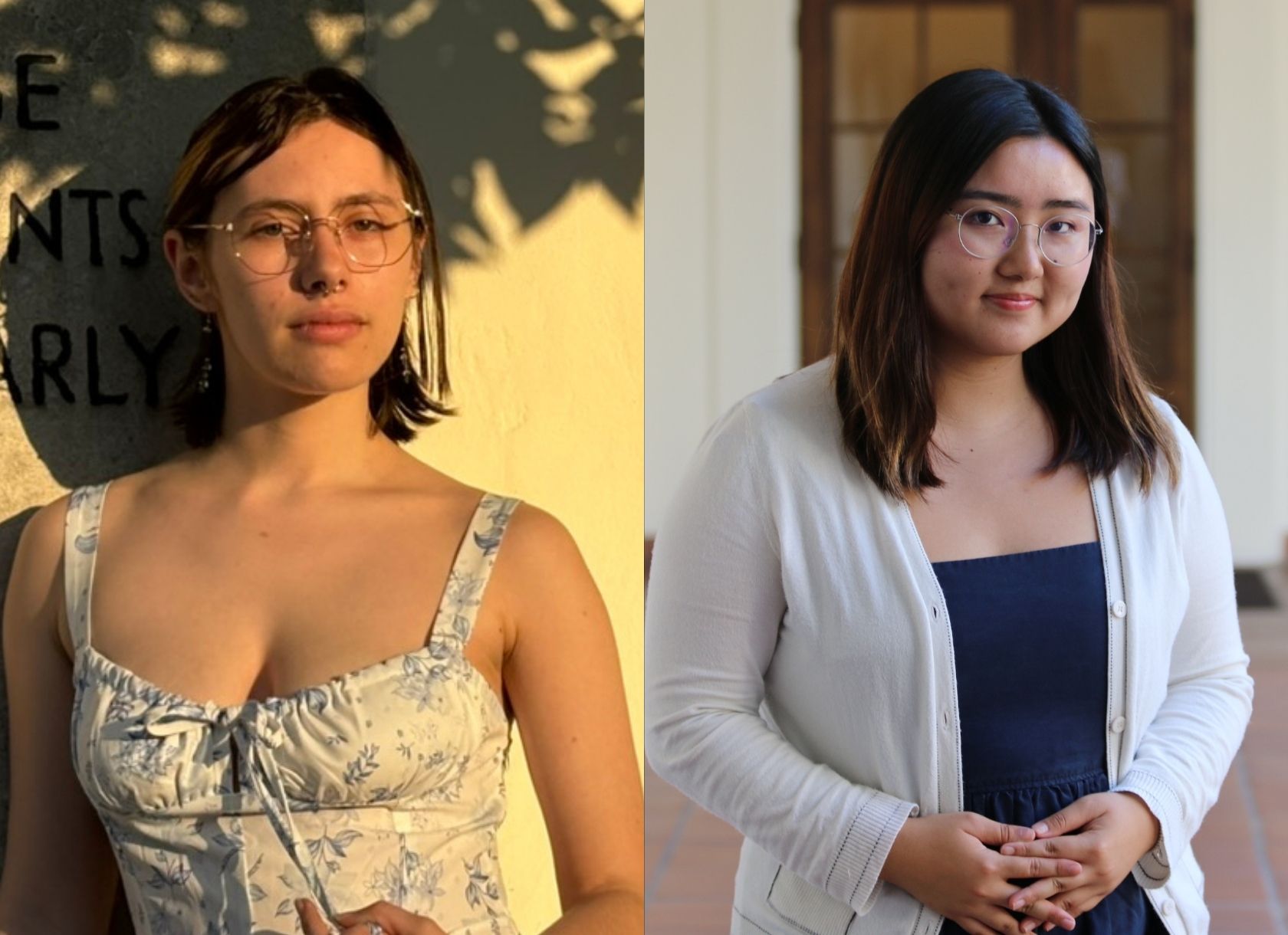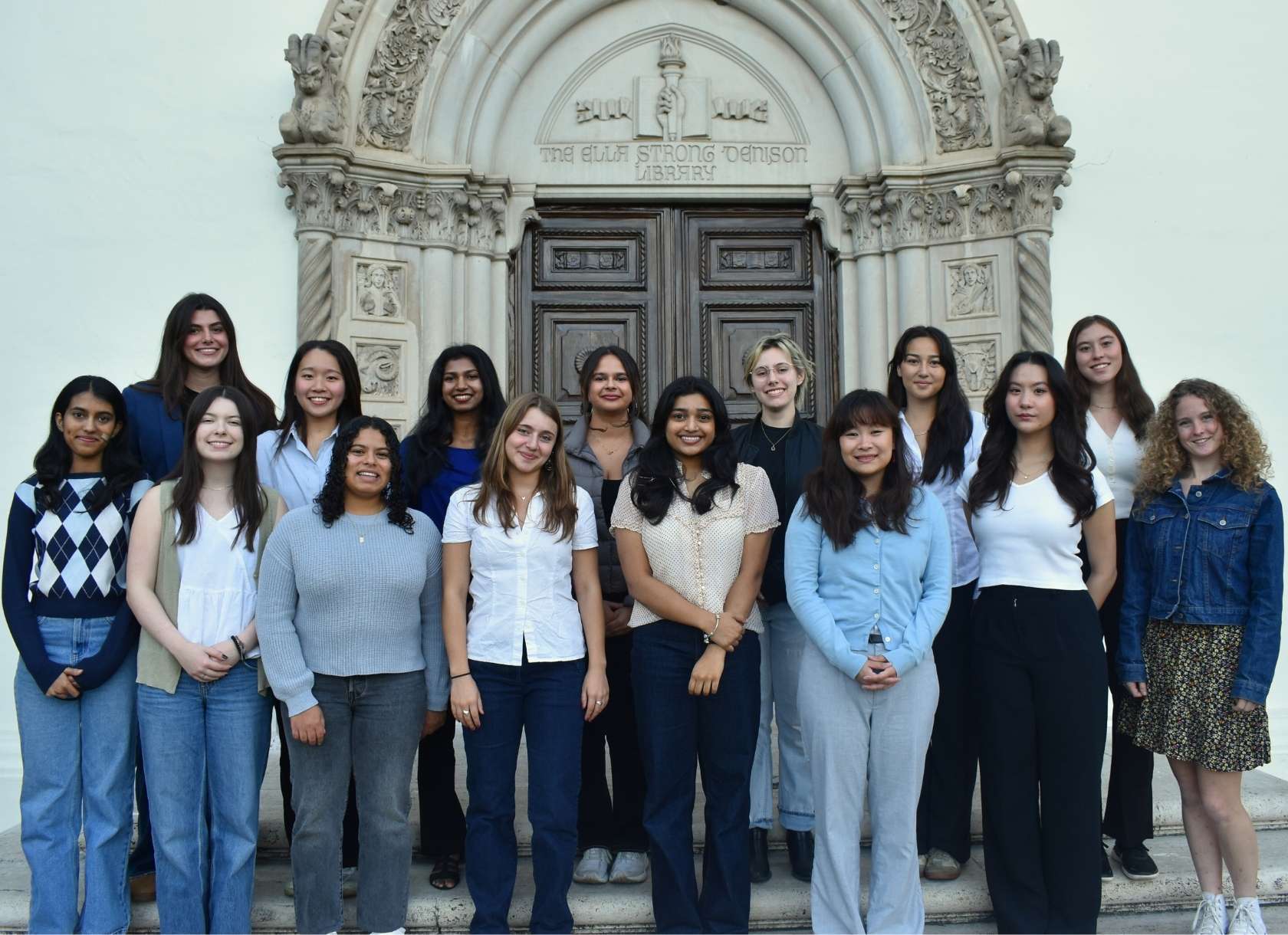
Tomi Jinks ’26 and Madyson Chung-Lee ’27
By Lauren Mar ’27
If you were to survey a random group of students at Scripps, the chance of there being at least one politics major is highly likely. Every year, Scripps’ politics department attracts interest with its flexibility and opportunities for real-life application, making it one of the most consistently popular majors for students.
Madyson Chung-Lee ‘27, a politics and Asian studies dual major, sheds light on the versatility of a Scripps politics major: “Going into college, I always knew I was going to major in something in the humanities. I ultimately decided to go with politics because it was very broad, and I was able to choose whatever I wanted to focus on.”
Chung-Lee points to the diverse range of paths offered to politics majors. At Scripps, students can choose two of six concentrations: global politics, comparative politics, political economy, political theory, public policy, and American politics. In addition, politics majors also consult with their advisor to determine the student’s “focus,” which is a specific topic or area of study. This collaborative and student-led framework allows students to tailor their major to their specific interests.
Putting theory into practice: Political engagement on and off campus
Another reason for the major’s popularity is its emphasis on political engagement on global, regional, and local levels. In classes with professors, the major facilitates important conversations among students about the world around them.
Tomi Jinks ’26, politics major and double minor in visual arts and Asian studies, echoes this sentiment: “One of the things that I wanted to do with my major coming into college was to feel like I’m helping other people,” they say. “Scripps has given me a good theoretical framework to start doing that.”
While many institutions have political science or political studies programs, the Scripps politics major is singular with its politically involved community. As Chung-Lee states, “The politics major at Scripps is unlike any other because you have the opportunity to directly apply your learning into the community that you’re in.”
Several courses facilitate praxis, such as supporting local organizations in Los Angeles and the Inland Empire, hosting conferences on campus, or directly working with campus student groups.
“Politics majors don’t just learn about the theory that we are taught in classes. We learn how to involve ourselves critically through a political lens. We’re not just learning about history, but how to make a better future,” says Chung-Lee. “Politics allows you to be a part of a broader community that’s committed to doing something bigger than just your major.”

2025 SAS Senate
Chung-Lee and Jinks are both active with Scripps Associated Students (SAS), the Scripps student government. Jinks is a member of SAS Senate, a group of students appointed to carry out initiatives to address student needs. Joining SAS Senate, the junior says, was a direct result of their politics major and observations of issues on campus.
Chung-Lee and Jinks also apply their interest in politics outside of campus. This past summer, Chung-Lee was appointed by Governor Gavin Newsom to the California Youth Empowerment Commission. She was also an intern for AALead, a nonprofit which serves Asian American Pacific Islander (AAPI) youth in the DC area.
“My major allows me to pursue a broad range of opportunities,” Chung-Lee reflects. “I’m able to choose between working in public or NGO sectors and working in finance-oriented spaces.”
Following an internship at The Borgen Project, an organization which works to reduce world poverty, Jinks is also considering multiple paths for their future.
Jinks says, “I want enough time to be able to work on my art, but I also want to do something that is beneficial to a community. I feel like my politics major will enable me to work in a lot of different areas, whether that’s NGOs, Peace Corps, or a food movement.”
Discovering interdisciplinary connections through politics
The politics major also pairs well with other academic disciplines. Some of Chung-Lee’s favorite classes are those that have combined both her majors.
“Everything is connected to politics. I chose to be a politics and Asian studies major because I don’t think that one can go without the other. Through the classes that I’ve taken, I’ve learned that my identity is something that cannot be detached from my learning,” she says.
Similarly, Jinks’ minors in art and Asian studies have enabled them to pursue their interest in studying soft power in East Asia. Jinks says that politics has provided them a lens through which to view the world, including art’s messaging, advertising, and artistic access.
The current political climate is undeniably fraught with tension. In an era of great polarization, becoming more involved in political action or education may seem daunting. Chung-Lee and Jinks emphasize that the politics major allows them to channel their desire to enact change in meaningful ways.
“The Scripps politics major does a really amazing job of breaking down systems of power,” reflects Jinks. “You could go to any school and take political science where you learn how to work the stock market, but Scripps isn’t going to do that. The people in the department have really treated everyone as an individual with their own interests.”
For those considering the major, take it from Chung-Lee: “Anyone can be a politics major; all you need is the passion to create change for the better.”

